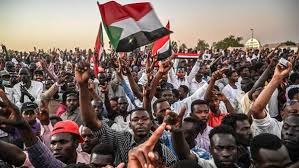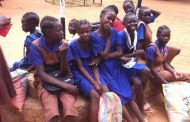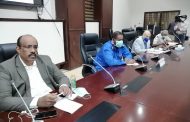KHARTOUM — The COVID-19 pandemic is set to exacerbate pre-existing gender inequalities and the virus’s impact will disproportionately affect women, according to the United Nations Population Fund in Sudan.
COVID-19’s adverse effect on women requires a specialized response that recognizes and addresses their rights, their medical and social needs and promotes their leadership in the response.
“Women will face the brunt of the COVID-19 crisis in alarming ways and the disease may make gender inequality worse in Sudan,” said Massimo Diana, the UNFPA representative in Sudan. “Women and youth helped bring political change in Sudan and with the same determination they can help defeat this pandemic.”
There have been at least seven confirmed cases of COVID-19 in Sudan, and there may be more unconfirmed cases across the country.
Like other outbreaks, women are expected to be uniquely affected by the novel coronavirus.
Women are more likely to have contact with health services — specifically antenatal care, childbirth delivery and lactation. Thus women face a greater threat to COVID-19 exposure at these health facilities. Furthermore, an overload of cases on medical systems means that women may not be able to receive basic services.
Seventy percent of healthcare and social workers across the world are women, putting them at risk during the COVID-19 pandemic.
“Every day that we do not support Sudan’s health system and protect health workers compounds future hardship if the pandemic continues to spread in Sudan and North Africa,” Diana said.
Curfews and lockdowns will make women more vulnerable to gender-based violence and domestic abuse. Women’s role as primary caregivers means that they will face the brunt of financial hardship as a result of an economic downturn.
During the 2014–16 Ebola outbreak, women were more likely to be infected by the virus because of their predominant roles as both caregivers and frontline healthcare workers.
“A proper COVID-19 response should take advantage of the historic role that women and youth play in Sudan’s society. We saw last year how women and youth can bring political change. They can help to defeat COVID-19,” Diana said.
UNFPA is supporting youth leaders, health workers and midwives with a public awareness campaign to stop the spread of COVID-19. The agency is working with Sudan’s Ministry of Health to place equipment in new facilities. UNFPA is also providing lifesaving supplies for doctors and midwives, including protective equipment for medical professionals to treat patients and suspected cases.
Two out of three Sudanese are estimated to be youth below the age of 24, and Sudan has one of the highest maternal mortality rates in the world, according to UN figures. Seventy percent of maternal deaths could be prevented through simple measures such as raising community awareness about women’s health issues, strengthening referral systems, improving blood transfusions and providing intensive care units.
UNFPA works to deliver a world where every pregnancy is wanted, every childbirth is safe and every young person’s potential is fulfilled. In 2020, UNFPA global humanitarian assistance aims to reach some 48 million women, girls and young people.









